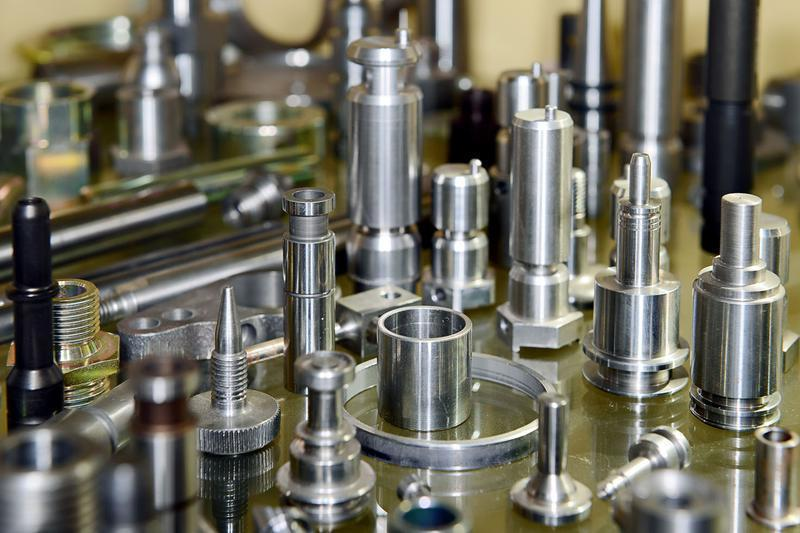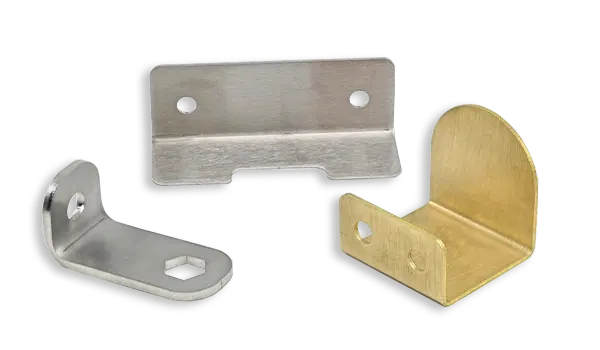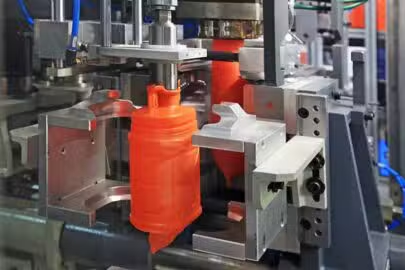The custom metal parts are the core of many industries such as automotive, aerospace to electronics and canal construction among others. Such components are typically customized to address an individual’s needs and as a result, they deliver accurate dimensions but present specific designs and give high performance. With speed and customization being a way of life for most people around, anyone can order online customized metal parts anywhere in the world like it is just another thing to do.
This guide can serve as a reliable resource throughout the whole process of metal part customization orders online. No matter if you are an experienced maven of manufacturing or a newcomer, understanding how online ordering works can make your processes even better, generate superior results while saving time and money.

Why Order Custom Metal Parts?
There are several reasons why ordering your metal parts online is better:
Increased Flexibility and Customization
There is nothing that can compare in terms of the freedom and choice offered to manufacturers, as well as designers when ordering custom metal components online. On the other hand, custom parts can be tailored to specifications that meet special design conditions and functional needs not available in ready-made components. At this degree of customization, one can apply even complicated geometries, complex details and peculiar features that cannot be obtained by means of standard components.
Quick Turnarounds
The first advantage of ordering custom metal fabrication online is fast production time, from concept to manufacturing. This differs from traditional manufacturing processes that may take long lead times and complicated logistics, whereby the entire process of sending designs to order fulfilment is simplified.
Adopting digital manufacturing technologies and automated quoting systems allows for streamlining rapid prototyping and optimizing production scheduling by removing arduous manual operations that result in long delays. Such agility allows for swift iterations and changes, shorter product development periods, and quicker time-to-market.
Cost Savings Compared to Manufacturing In-House
The benefit of outsourcing custom metal parts manufacturing to online vendors is that it can substantially lower costs as compared to establishing in-house production facilities. SMEs do not have enough financial muscle to invest in specialized machinery, tooling and infrastructure.
By engaging online suppliers for manufacturing, businesses can save on the capital that would have otherwise been needed to establish and operate a factory. Online platforms usually have a pay-per part system where in case of need customers can order only what is needed eliminating unnecessary overhead costs.
Deciding What Metal to Use
It is essential to know the most suitable metal for your metal parts. Here is a list of the common metals for custom parts:
Aluminum
Outstanding heat conductivity, corrosion resistance, and lightweight. When it comes to bespoke metal parts, aluminum is a very advantageous and adaptable metal. Due to its low weight, it is perfect for applications like the automotive and aerospace industries where weight is an issue. Aluminum is also incredibly resistant to corrosion, which makes it ideal for outdoor and marine settings.
Steel
Steel is appreciated for its strength, longevity as well as adaptability and is therefore preferred in crafting customized steel components that require rigidity and reliability. Based on the variant, carbon steel, stainless steel or alloy steel possesses individual properties that make them suitable in some applications. For example, carbon steel is considered a good material because of its high tensile strength and cost-effective nature which makes it preferable for use as structural components and machine parts. On the contrary, stainless steel is characterized by corrosion resistance and a hygienic nature that makes it applicable in food processing equipment, medical devices, as well as architectural structures.
Stainless Steel
It is exceptionally resistant to heat, chemicals, and corrosion. Stainless steel is a great option for applications where exposure to chemicals and moisture is a concern because of its outstanding corrosion resistance. Additionally, it has a high heat resistance, which makes it appropriate for hot environments. Because of its strength and reputation for endurance, stainless steel is perfect for heavy-duty applications.
Brass
It is durable, malleable, and has an appealing appearance. Brass is a popular material for custom metal parts due to its unique properties. It is extremely durable and corrosion-resistant, making it ideal for a wide range of applications. Brass is a malleable metal, which means it can be easily shaped and formed into intricate designs. Its attractive appearance, with a warm golden hue, enhances the aesthetic appeal of finished products.
Copper
Copper is valued for its superior conductivity, corrosion resistance, and antimicrobial properties – ideal material in custom metal parts of electric, plumbing, and medical sectors. The latter is an indispensable product for electrical wiring, connectors, and electronic components due to its conductivity, while it also has antimicrobial features that make it fit for healthcare facilities, touch surfaces, and HVAC systems. Although copper starts as a reddish-orange color, it eventually develops a unique patina that gives architectural features and artistic creations personality and appeal.
Choosing an Online Metal Fabricator
Here are some factors to consider before choosing an online sheet metal fabrication service provider:
Capabilities
When choosing an online metal fabricator, it is vital to evaluate their capabilities toto ascertain whether they meet the needs and requirements. Research for a fabricator that can provide various manufacturing procedures, including CNC machining, laser cutting, bending, welding, and finishing. Ensure that they are equipped with the knowledge and tools necessary for working on materials such as aluminum, steel, stainless steel, brass, or copper. Secondly, look at the complexity and volume of parts they can handle as well as any specialized services like rapid prototyping, reverse engineering, or assembly abilities.
Pricing and Quote Process
Transparency in pricing and a simple price quote process are some key things to consider when choosing an online metal fabricator. Look for a fabricator that provides the price breakdown either on their website or in their online quotation form. The quoting process should be simple enough for you to upload your design files, give details on the material and quantities required as well as a cost quotation.
Make sure that there are any additional costs or charges such as setup fees, tooling charges, and fast track processing fees included in the quote. Compare quotes from different fabricators to ensure that you are getting competitive pricing without sacrificing quality or service.
Shipping and Lead Times
However, it is especially important to take into account effective shipping and reliable lead times when choosing an online metal fabrication company if you need your orders by a particular date, have strict deadlines or work with time-sensitive projects. Look for a fabricator that offers fast and reliable shipping services both within the country or abroad so you can receive your custom metal parts on time in good condition.
Their estimated lead times for manufacturing and delivery should also be considered, based on the order quantity, degree of complexity, and any additional processing or finishing services that may be required. Additionally, enquire about their rush order policies, expedited shipping, and tracking system so that you can feel at ease throughout the process.
Communication and Design Support
Communication and design support are important aspects that one ought to consider when choosing an online metal fabricator. Find a fabricator that provides individual customer service as well as quick response to queries and complaints. Communication channels need to be clear at all stages of the ordering process, involving email, phone, and live chat for any queries or modifications.
Furthermore, think about the design support offered by a fabricator, such as material selection, optimization of designs, and feasibility analysis. This is where a fabricator who provides engineering knowledge and design consultation can further refine your ideas, make the manufacturability better, and ultimately end up making the quality of your custom metal parts better.
Materials Offered
The availability of different materials provided by an online metal fabricator is one of the most important factors to consider when making a decision. Seek a fabricator who offers various metals and alloys, including common materials like aluminum, steel, stainless steel, brass, and copper, as well as specialty materials for specialized uses. Confirm if different grades, thicknesses, and finishes are available to see if they can support your material needs.
Moreover, ask about any other services provided that may include material sourcing, custom alloy development, or testing and certification of the materials. Selecting a fabricator with a diverse range of options ensures that you have the freedom to choose what suits your performance, aesthetics, and budgetary needs.
Quality and Certifications
To ensure the quality and dependability of your custom metal parts, it’s critical that you select an online fabricator that adheres to tough quality standards and certifications. Choose fabricators that implement standard quality management systems like ISO 9001 certification to show their dedication towards uniform quality and continuous improvement.
Also, ask about any special certifications or qualifications pertaining to your field of practice or use, like AS9100 for aerospace or ISO 13485 for medical devices. These certifications show that the fabricator has met high standards in quality, safety, and regulation compliance, ensuring that your custom metal parts will work efficiently and be safe.
Designing Your Custom Metal Part
Here are the steps to designing your custom metal part rapid prototyping and other manufacturing needs:
Creating Technical Drawings and Specs
It is essential to create detailed technical drawings and specifications before customizing metal parts, which should include the dimensions, features, and tolerances of your design. Use CAD software to generate accurate 2D drawings or 3D models that encompass all necessary geometric information, such as part geometry, hole patterns, surface finishes, and material designation.
Ensure that your drawings are clearly annotated with dimensions, tolerances, and notes in order to ensure that the fabricator understands your design intent. It is advisable to refer to a design engineer or manufacturing expert in order for your drawings to be developed with the manufacturability and functionality in mind.
File Types and Dimensions
In the case of submitting files to a sheet metal fabrication service provider, it is crucial that you use the right file formats and dimensions for easy quoting and manufacturing. Common file formats for CAD drawings are DXF, DWG, STEP, and IGES, which are compatible with most CAD software as well as machining equipment. Make sure that your files are saved in the appropriate units (such as inches or millimeters), along with details like layers, annotations, and geometric entities. Also, ensure that the size and scale of your custom metal component are accurately reflected in file dimensions to avoid any mismatch during manufacturing.
Tolerances
Tolerances are of great importance when it comes to the functionality and fitment of custom metal parts, so you must specify tolerance requirements in your design documents. Tolerances specify the acceptable variation in size and geometric characteristics, usually given as a range or deviation from the nominal dimension. In choosing the tolerance values, take into consideration both the functional requirements of your part and the manufacturing process capabilities. Depending on the level of precision needed, tighter tolerances may be required if it is a matter of precision components or mating parts, while looser tolerances would suffice for less critical features. Consult with your fabricator to determine reasonable tolerances that balance cost, performance, and manufacturability.
Finishes
Your custom metal part requires the right finish choice to achieve the desired appearance, durability, and functionality. The main finishes for metal parts include coating, plating, anodizing, polishing and powder coating with different benefits and properties. In choosing the right surface finish for your part, you need to take into account such aspects as resistance to corrosion, frictional characteristics, aesthetics and environmental impact. The finishing possibilities should be negotiated with the fabricator to determine the best suitable choice that would fit your material, application and budget. Second, specify any surface treatment or post-processing need in your design documentation that will ensure it is done properly during the manufacturing process.
Manufacturing Processes
The choice of manufacturing process has a significant effect on the price, lead time, as well as quality of custom metal parts. Therefore, you have to pick a method that is suitable for your design requirements. The commonest metal parts manufacturing processes are CNC machining, laser cutting, stamping, bending, welding and additive manufacturing. Every process offers its own distinct set of advantages in terms of accuracy, complexity, material compatibility, and scalability. Analyze the strengths and weaknesses of each process considering your design needs, production volumes, and financial limitations. Collaborate with your fabricator in order to develop an acceptable manufacturing strategy that will ensure quality.
Ordering and Approval Process
You can control the ordering and approval process of your custom metal parts effectively and efficiently by the following process:
Getting a Quote
The first stage of ordering custom metal parts is to get a quote from the fabricator. Online metal fabricators, in general, provide a user-friendly quote request process via their website or another online platform. Generally, you will have to upload your design files and indicate the material needs, quantities, and any additional information related to your project. When you submit the quote request, the fabricator will review your specifications and respond by providing a detailed quotation, including cost, lead time, and other applicable fees or charges. This is why it is crucial to analyze the quote closely and ensure it fits your budget and time before moving on.
Approving Proofs and Revisions
After getting the first quote, you might be able to ask for proofs or prototypes of your custom metal part to review and approve. Fabricators can offer digital visualizations, 3D models, or physical prototypes that help anticipate the final product and ensure design accuracy. Check the proofs thoroughly to assess whether they satisfy you with regard to dimensions, features, finishes, and overall quality. If revisions are necessary, ensure that you communicate your feedback to the fabricator in a timely manner, indicating any changes or adjustments needed. Work closely with the fabricator to iterate on the design until you are happy with the final proof and ready for production.
Confirming Order and Down Payment
After approving the proofs and finalizing the design specifications, you must place your order with the fabricator. This often entails the approval of a purchase order or contract, which contains the terms and conditions of the transaction, such as price, lead time, payment terms, and other service elements. In accordance with the fabricator’s policy, you may be obliged to make a down payment or deposit to guarantee your order and start production.
The down payment amount and type of payments accepted may differ in each case, so make sure that you discuss these points with the fabricator beforehand. By confirming your order and making a down payment, you officially initiate the manufacturing process and ensure that your custom metal parts are manufactured to specifications and time frames.
Production and Quality Inspection
As soon as an order is confirmed and production start, the fabricator will produce your custom metal parts that meet standard design specifications. In the fabrication process, various quality control processes will be used to ensure that the metal parts satisfy some specifications and standards. These may include in-process inspections, dimensional checks, and material testing to verify the accuracy, uniformity and compliance with tolerances.
The quality inspection procedures will be quite elaborate in accordance with the complexity of parts and manufacturing processes. For instance, CNC machining operations can include automated inspection equipment to measure the dimensional accuracy and surface finish. Meanwhile, welding processes may necessitate visual inspections and non-destructive testing for verification of weld integrity and strength.
Shipping and Delivery
After production and quality control, the fabricator shall then make your custom metal parts ready for shipment and delivery to your preferred location. Given the size, weight, and demand for parts to be shipped, along with your choice of mode of transport and time-frame, the fabricator will ensure proper packing and delivery.
In most of the online metal fabricators, there are various shipping options provided to customers according to their needs like standard shipment, expedited shipment and international shipments. While waiting for your delivery, the fabricator will provide you with tracking information that you can follow to track down your shipment.
After you receive the custom metal parts ordered, inspect them to confirm that they meet your standards regarding quality, accuracy and condition. In case any issues or inconsistencies are identified, immediately contact the manufacturer to address this issue and find a solution.
Conclusion
You now have the knowledge and assurance to order custom metal parts online thanks to this comprehensive guide. With knowledge of the metal fabrication procedure, appropriate material selection, and quality control, you can make well-informed choices and get the desired outcomes. So go ahead and use custom metal parts that can be easily ordered online to realise your ideas! Do you need a good sheet metal fabricator suitable for all your custom metal parts needs? Contact Zintilon today to get started!
Read More
- Anodized Aluminum Colors: What Are the Available Options? – Zintilon
- Rapid Prototypes: Everything You Need to Know – Zintilon
- Optimizing Your CAD Model for CNC Milling: Essential Tips
- A Guide to Rapid Prototypes and their Benefits – Zintilon
- Will 3D Printing Replace CNC Machining in Rapid Prototyping? – Zintilon
Great, Together



